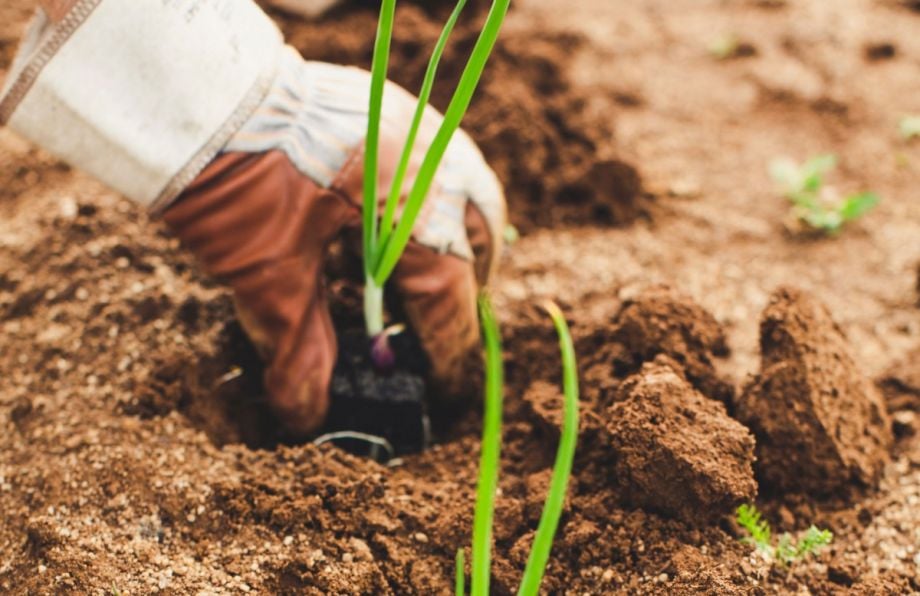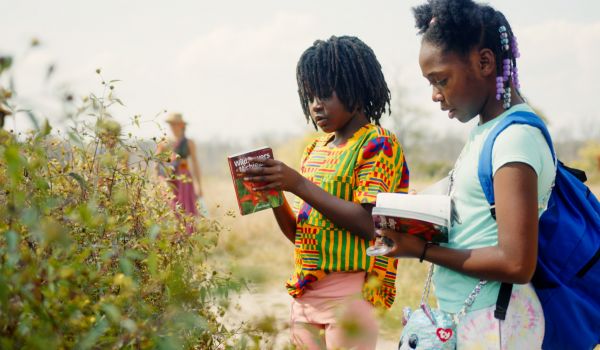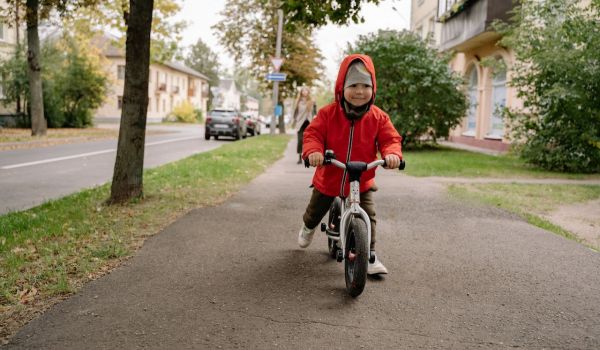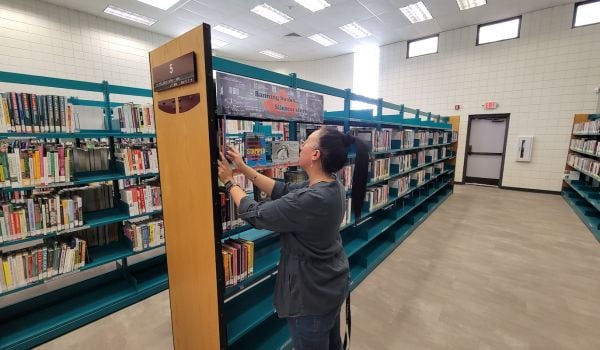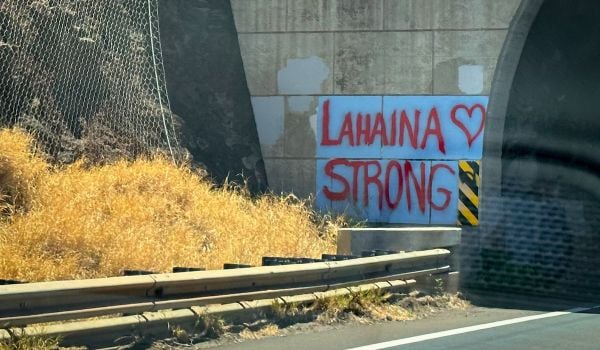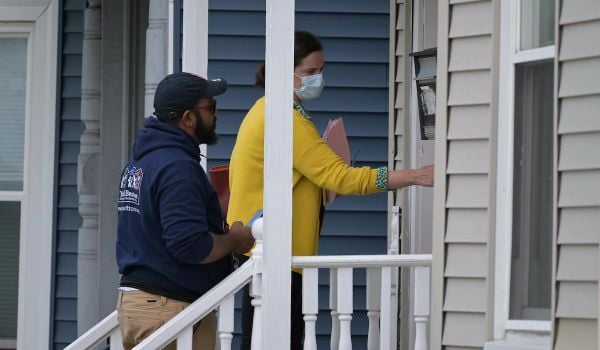This story was originally published by Chalkbeat. Sign up for their newsletters at ckbe.at/newsletters.
A new horticulture program is blooming at a Bronx high school, and environmental science teacher Vanessa Spiegel is helping tend it.
Bronx International High School — a progressive, project-based school that serves recent immigrants — launched its urban farming program this year at the five-year-old Morris Campus Farm, adding it to its roster of career and technical education, or CTE, tracks. Students can graduate with a career seal on their diploma that is equal to an advanced Regents diploma and three college credits through a partnership with SUNY Cobleskill. They’re already getting a taste of running a working farm: their Serrano, Jalepeño, Poblano, and Bell peppers are being used by Small Axe Peppers to make its hot sauce.
“I was in awe that such an extensive program existed right here in the Bronx and absolutely loved the idea of giving students access to the earth, the process of growing food, the cycles of nature,” Spiegel said. “When I began teaching, I was surprised by the disconnect between students that grew up in the city and where their food comes from. I would take them on a tour of our garden and have them smell the mint and, surprised, they’d go ‘Oh! That smells like gum!’ So helping students make those connections between city life and nature is incredibly important to me.”
Spiegel has an ideal resume to lead the new program, especially at this moment when academic and social-emotional needs are so entwined. Not only is Spiegel licensed in agricultural and science education, but she also is a licensed social worker. As a Math for America Master Teacher, Spiegel is part of that nonprofit’s community of accomplished math and science teachers in New York City. She is also a founding member of Teach the Truth - Westchester, a grassroots coalition aimed at supporting schools and teachers in affirming the diverse identities of students and accurately recounting the nation’s history.
This interview has been lightly edited for length and clarity.
Was there a moment when you decided to become a teacher?
I think I was always meant to be a teacher. I loved playing school and being the teacher when I was little, and I love learning.
When I was in college I majored in wildlife conservation because I was able to envision the interconnectedness in nature and appreciate that all we truly need for survival comes from the Earth. I originally thought I wanted to be a zoo educator to bring this knowledge and appreciation to others. But in adding my agricultural education double major, I completed my student teaching, and I’ve essentially been teaching high school ever since.
I love working with the kids; they keep me young!
Can you tell me about this new program and what led you to teaching it?
We need more farmers to continue making enough food to sustain our population. In turn, it provides our students with professional training and certification so that they can choose to enter the workforce after graduation or continue with their studies into college. The urban farming aspect brings fresh, organic, and locally grown food to areas that might typically not have access to those things. We have the most amazing farm manager, Hector Bardeguez, who loves working with the kids, has an extensive sustainable farming background, and who I absolutely could not do this without!
We currently have over 15 raised beds that are primarily used for crops, as well as a pollinator garden with various flowers and herbs. Students have the opportunity to practice sustainable, organic, eco-friendly farming by working the farm through all seasons and using it as an outdoor classroom. We have built community partnerships with Bronx Green Up at the New York Botanical Garden, Small Axe Peppers, Morning Glory, and Montefiore [Medical Center], which all help to extend students’ learning. We’re also a Summer Youth Employment Program, or SYEP, site, so many students get paid through their internships and work experience, which can be incredibly helpful to many of our families. Not to mention the excellent fresh food they bring home!
How do you get to know your students?
One of the first things I ask students to do is complete a “Getting to Know You” questionnaire, which provides a glimpse into the student’s life and experiences early on. I think it’s easier for them to write some things through a Google form instead of talking about them in front of their peers.
Then throughout the semester, I take time to begin and/or end each class with a question, asking students to share a little bit about themselves, such as: “If you could have any superpower, what would it be and why?” and as we get to know each other better, I will ask deeper questions like “What is your gift to the world?” or “Who do you go to when you have something to celebrate?” I feel it helps to build a community of trust and support.
And then, of course, there’s time while we walk out to the farm from our classroom or when we’re working on the farm that we really get to know each other. I always learn a lot during those moments because that’s when the students are most themselves and most unguarded.
Tell us about a favorite lesson to teach. Where did the idea come from?
One of my favorite lessons so far was about gardening by the moon phases, something that has been practiced for a long time and is a major part of the Old Farmer’s Almanac. We discussed the different phases of the moon, how they affect plant growth, and what plant management techniques are best to do and when to do them. For example, it’s a good time to cut weeds during the new moon and full moon because the moon affects the water in the soil (think tides) and water is being pulled up the stem more so it will cause the plant to die and not return. I like this lesson because it really highlights all the interconnectedness that occurs in nature.
What’s something happening in the community that affects what goes on inside your class?
Many areas of the Bronx are considered food deserts, including where many of our students are from, where there’s a lack of access to fresh foods like what we’re able to grow on our farm. We are incredibly fortunate to teach our students how to grow their own fruits and vegetables, even in small containers, to counteract the lack of access to fresh food. We have a partnership with Montefiore and Wellness in Schools to provide our students with additional knowledge on nutrition and cooking demonstrations that help our students see new ways of using the vegetables we grow on the farm.
The pandemic has enhanced the issue of food insecurity, which is now an even bigger issue than it already was. Through what we grow on the farm, we are able to give back to the community. Just this year, we’ve been able to donate thousands of pounds of fresh produce to local food banks.
Do you have an experience from when you were a student that helped shape the kind of teacher you want to be?
My homeroom teacher supported me when I wanted to create a club to discuss the AIDS epidemic and LGBT issues and my art teacher, no matter what, was supportive and positive. These were examples of how I wanted to be.
On the flip side, there were also the teachers that showed me who I didn’t want to be. I will never forget the teachers that judged me on my style and how the assistant principal at my high school berated me at the front of the cafeteria for all to see because of it. I often felt like I couldn’t be me or that I was bad for being different and unique.
I want to support and respect my students’ interests and personalities. I want them to feel seen. I want to highlight their strengths and help them develop their best version of themselves.
What was your biggest misconception that you initially brought to teaching?
My biggest misconception was that teaching is a respected profession and my expertise would be trusted as long as I taught, supported, and centered my students. I don’t think I was aware of just how political the field of education is and it’s becoming even more so between the pandemic and the anti-CRT movement.
My school, as well as the consortium and international networks that we are part of, are incredibly focused on equity, culturally relevant teaching, and anti-racism work. However, where I live, I’ve seen teachers be taunted and their jobs threatened for teaching an accurate history of our country and affirming all students in the classroom. This realization and frustration have led me to be more active outside the classroom through co-founding Teach the Truth - Westchester. We’re currently focusing a lot of effort on school board elections and supporting candidates that will work on creating equitable and affirming environments for all students.
Recommend a book that has helped you become a better teacher.
“Pedagogy of the Oppressed” by Paulo Freire. It amazes me that it was originally written in 1968 and everything he wrote about it is still occurring and still incredibly relatable. I would venture to say that his main points are at the heart of the anti-CRT movement. If we don’t know our true history and aren’t taught to analyze systemic oppression, then we can’t challenge it and rise above it. One of my goals in our program is to integrate BIPOC agricultural practices through storytelling and practicing respect for the land with sustainable farming methods.
What’s the best advice you’ve received about teaching?
Slow Down! This can be applied in so many ways. Often we’re taught, as educators, that we need to get through the curriculum, we need to prepare the students for the exams, etc. But if we rush, we don’t take the time to get to know our students. Also, if we don’t slow down, we don’t get an opportunity to see if the students truly understand what they’re learning or if they’re just regurgitating information they expect to see on exams.
I love working at project-based schools like BxIHS because the students get an opportunity to learn through doing. They are able to truly experience what learning looks like outside of school. It’s effort, research, trial, error, and doing it all over again sometimes. And that’s ok! That’s real! It helps students to recognize that they don’t need to get everything right the first time (most people don’t!) and that sometimes, we learn the most when we “mess up”. And all of that learning would be missed if we were to rush it. This is all especially valuable in urban farming, we really need to rely on the plants and the weather for all that we do, and you can’t rush nature!
Chalkbeat is a nonprofit news site covering educational change in public schools.
Amy Zimmer is the bureau chief for Chalkbeat New York. She is an award-winning journalist who previously covered education for the New York news site DNAinfo. Her writing has appeared in the New York Times, Wall Street Journal, Metro newspaper, and City Limits, among other outlets. Her book, “Meet Miss Subways,” focused on one of the nation’s first integrated beauty contests. She also led content strategy at the tech startup Localize.city. Amy received her bachelor’s degree in anthropology from Yale and has a master’s in journalism from New York University.

